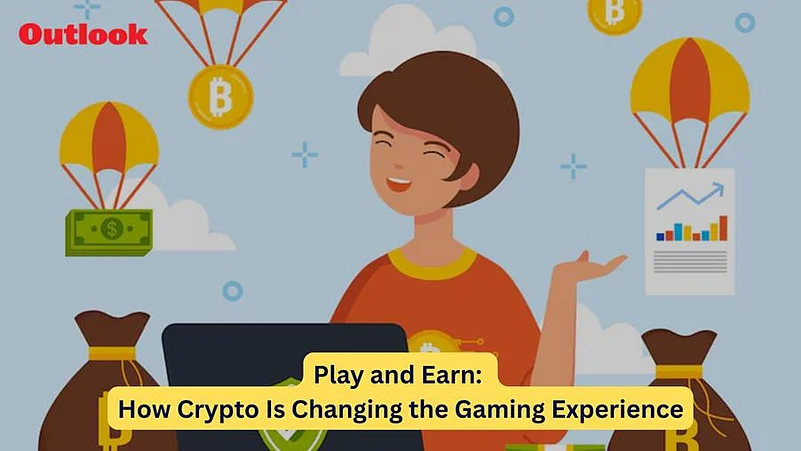Video games were always thought of as something for relaxation, spending free time, or even competing with friends. The players would develop skills for hours, earn rewards, and collect objects within the game—but it was all over once the screen was turned off, and the prizes were stuck within. Now, this reality is gradually shifting with the emergence of cryptocurrencies and blockchain technology. The "play and earn" model is setting in and slowly transforming how people interact with games.
Central to this change is the idea that a player's time, commitment, and investment in a game can now translate to real-world value. By implementing cryptocurrencies into games, developers are creating ecosystems where players can receive virtual currency, trade goods, and even profit—playing games they enjoy. This new way is no longer just about fun; it's about ownership, economy, and opportunity.
What Is "Play and Earn"?
"Play and earn" is a gaming model where players get cryptocurrency or virtual token payment for playing, performance, or contribution within the game. Unlike games where players purchase items but may not necessarily "own" them outside the system, blockchain games enable complete ownership of assets within the game. They are transferable, sellable, and exchangeable into other environments, closing the value gap between virtual worlds' rewards and real worlds' economic value.
This framework is oftentimes created on decentralized networks, where security and transparency are the underlying features. Every item, transaction, or reward is saved on a blockchain—a digital ledger that can't be altered. This ensures that what a player wins is truly theirs, without the possibility of deletion or alteration by some corporation.
How Is Crypto Transforming the Gaming Experience?
The largest shift that crypto brings to gaming is the idea of value creation. Players are no longer just spending money—they're creating it. Players in this system are producers in a wider digital economy. Every quest completed, item acquired, or obstacle defeated can potentially be rewarded with something of actual monetary worth.
Moreover, the sense of ownership has an impact on gamers' behavior toward games. If a gamer learns that something they have acquired or won is a digital asset they own exclusively, it triggers a level of attachment to the game process. These assets are stored in digital wallets and can typically be accessed from multiple platforms because of the interoperability of the blockchain.
Crypto integration also supports community-driven environments. Some platforms provide players with a say on the direction the game moves through the ability to possess governance tokens—another type of crypto asset that allows them to vote for updates, rule changes, or new features. The democratic approach makes the world of games feel more inclusive and responsive.
Yet another dramatic change is providing new earning opportunities to people who otherwise would not have an entry into traditional employment. For some, gaming has become an ancillary or even primary means of income. This has raised discussion regarding the role of gaming in future digital economies.
Challenges Along the Way
Although "play and earn" sounds attractive, it is in its development phase and has its drawbacks. The fear is that games can tilt too much toward profit and less toward fun. When players are rewarded mostly for earnings, the fun factor that brought people in the first place might become secondary.
Security is also a critical issue. Players must watch out for scams, fake platforms, and the loss of assets due to poor security practices. As with any money-related technology, awareness and education are the keys to safeguarding the users.
Also, the value of a crypto asset can be very unstable. What is worth a given amount today can depreciate or appreciate tomorrow. As it becomes hard for players to rely on gambling as a steady source of income, uncertainty sets in.
A Look Ahead
Despite these problems, it is clear that crypto is leaving a permanent mark on gaming. It will be interesting to see, as technology advances, more advanced systems, better gameplay experiences, and more safeguards for players. Game developers are realizing that games need to strike some kind of balance between fun and economic feasibility. Done well, play-and-earn models can create thriving digital worlds where players are not just consumers—they are investors.
It's not only a trend—it's part of a larger shift in our understanding of work, ownership, and online engagement. It allows individuals to find new ways to show their skills, creativity, and dedication while receiving something of value in exchange.
The future of the game may not be solely defined by high scores and game-over screens. When crypto is added to the mix, the line between play for enjoyment and play for value is disappearing. What comes next is a world where digital rewards can be as real—and as powerful—as anything accumulated in the real world.

























